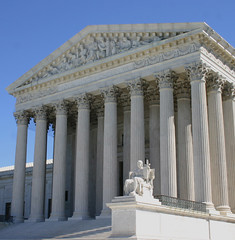 Time to update your social media policy again.
Time to update your social media policy again.
Requiring your employees to include a disclaimer in their social media posts that their opinions are their own is “unreasonably burdensome” and unlawful, according to a federal judge.
The development is just the latest in a series of decisions by the National Labor Relations Board, which has been progressively challenging employers to reconsider whether or not they have the right to dictate how their employees use social media.
The decision to restrict employers from requiring an “opinions are my own” disclaimer in their social media posts was triggered by an unfair labor practice charge from a Kroger employee who received a written warning for failing to comply.
The judge found the condition to be “unreasonable burdensome” because of the “subtle risk of chilling effects” this requirement could have on employees rights to organize and bargain collectively. It’s impossible to include a disclaimer in a Facebook Like anyway.
While the federal Administrative Law Judge’s decision in nonbinding and requires NLRB approval before it can be used as a legal precedent, it is nonetheless the most recent interpretation of how the NLRA enacted by Congress in 1930 governs how social media can be used in the workplace today.
In August 2013, restricting employees from using company logos, photos and video on social media was called a violation of the NLRA as well, since employees have a right to use company logos when gathering online, just as they did in the past on picket signs, leaflets and other printed materials.
The specific part of the National Labor Relations Acts which has been seen as protecting workers rights on social media in Section 7, which prohibits employers from taking actions against employees who get together to talk about the terms and conditions of their employment.
The bottom line is, you can’t fire someone for trying to improve their working conditions whether they’re unionized or not. And social networks are where employees go to discuss work these days.
The National Labor Relations Board has interpreted Section 7 as protecting employees from being disciplined for discussing wages, hours and working conditions with their coworkers online.
As a result, there has been a good deal of uncertainty around what types of restrictions employers can make over how their employees use social media. Very few social media policies have stood up as NLRB compliant. The majority of those review by the NLRB thus far have been seen as unlawful.
The US Supreme Court is supposed to deliver an opinion on whether or not these Section 7 interpretations are valid, since they were made by NLRB Judges appointed by the Obama Administration during a Congressional Recess. But until such a decision arrives, their interpretations are legally binding.
This post was written from an audio interview with Jonathan Crotty, partner at the law firm Parker Poe in Charlotte who an article about this development at Federal ALJ says social media policy cannot require employees to state that their opinions are not those of the company
Subscribe and get future episodes at On the Record…Online.
photo by: dbking